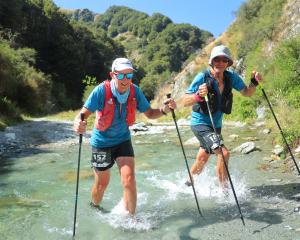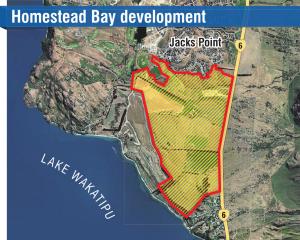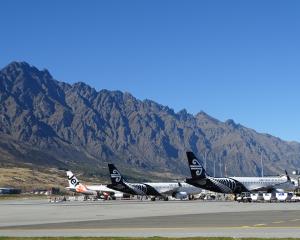
Auckland has the second highest burden on 41.7% while Christchurch householders enjoy the lowest ratio, at 27.4%.
The New Zealand average is 36%, compared to the World Bank's international "upper threshold" of affordability of 30%.
Community Housing Trust chairman David Cole released the information to the Queenstown Lakes District Council last week prior to the trust's bid next week for $2.8 million in Government assistance through the contestable Housing Innovation Fund.
New Zealand's average was higher than the World Bank threshold because different measures of affordability were being used, Mr Cole said.
"The World Bank looks at house prices and incomes and just compares those two, but in our view it is more important to look at the debt ratio. It brings in another factor; the costs of borrowing and servicing a mortgage rather than just the house price.
"That is a contributor to affordability and that's why households [in New Zealand] contribute such a high percentage towards servicing mortgages," Mr Cole said.
The Community Housing Trust has assessed the Queenstown Lakes threshold of affordability using median house prices supplied by the Real Estate Institute of New Zealand and median household incomes supplied by Statistics New Zealand.
The present median house price is $450,000 while the median gross income is $1158 a week ($60,000).
The Community Housing Trust was established by the Queenstown Lakes District Council in October 2006 to address concerns that up to 50% of people moving into the district leave after 12-18 months, because of high living costs, including the cost of housing.
The trust provides housing for low to moderate income households who are contributing to the social, economic and environmental wellbeing of the district, but are genuinely struggling to commit to the area.
It aims to put 310 families in affordable homes by 2016-18 and has already attained 10% of that target with 31 families now in homes with shared ownership.
An "affordable house" costs about $450,000, with the trust typically retaining about $150,000 interest, though the percentage of shared ownership can vary.
The trust's analysis of the first 19 householders on the scheme showed they were spending more than 50% of their gross wages on debt, which indicated many did not have much discretionary income to spend on other things, Mr Cole said.
Some people assumed income tax took the largest chunk out of wages but the costs of debt were actually greater for many people, he said.
So far, none of those on the programme had fallen behind with payments and they had a good track record of looking after their properties, he said.
The trust is supported by the council, developer contributions and stakeholder deeds such as those in place for Jacks Point or Lake Hayes Estate in Queenstown and the Kirimoko Block or Peninsula Bay, in Wanaka.
Negotiations continue regarding affordable housing at Arrowtown and at Scurr Heights, in Wanaka.
The Government has supported the scheme in the past, but that funding has been spent.
Any decision on the new funding application would not be available for several weeks.
Another long-term aim of the trust is to secure third-party investors by 2016.











